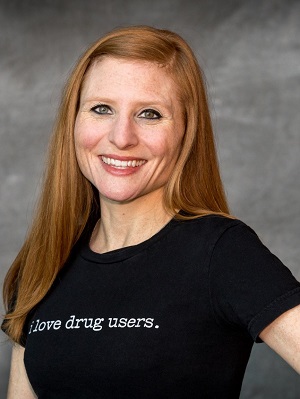American Psychological Association Division 50

Hello friends and colleagues,
I’m writing to you days after the 2025 Collaborative Perspectives on Addiction (CPA) conference. The theme—“Pathways to Sustained Recovery: Interventions and Community-Driven Approaches for Long-Term Success” —kept me grounded this week, reminding me that connection with community and the promise of recovery remain my center of gravity.
Recovery was everywhere in the research, the talks, Dr. John Kelly’s insightful keynote reviewing 50 years of addiction recovery science, but I also saw it in how we gathered. Thanks to Division 50 member feedback and the advocacy of our Student Committee, we offered our first-ever recovery spaces at CPA. We’re proud to continue this work at APA, where we’ll offer both SMART Recovery and 12-step mutual help meetings, open to all APA attendees. As someone in recovery myself, these weren’t just checkboxes. The inclusion of recovery spaces are vital means of caring for ourselves, promoting our collective welfare, and building our Division 50 community through inclusivity.
The theme of “community” was likewise centered in the packed symposia focused on community-based participatory work as well as Dr. Corrie Vilsaint’s electrifying keynote, “Community-driven Pathways to Sustainable Recovery for All.” Beyond the conference content, community-building lit up the weekend: In the hallway catch-ups, the lab dinners, the social events, and the lingering conversations and group selfies that spilled out after poster sessions. I heard it in the voices of students, early career professionals, community partners, and longtime members who reminded me that we’re in this together. I saw it in the comical ephemera of our day-to-day: When my luggage didn’t show up, a long-time colleague helped me out with outfits and hairspray and a ride to the airport. I saw it in more elevated, impactful ways: Joining colleagues in the Hands Off march between sessions, someone offered me their sign to wave after they needed to leave. I saw you all show up—for each other, for science, and for the patients, students and communities we serve.
It was a reminder that inclusive community-building is not just a strategy, it is a lifeline. And right now, it is more important than ever.
As many of us reflected on at CPA, we’re living in a time when diverse communities across our country are under threat: immigrant communities, the LGBTQIA2S+ community, and Communities of Color. Our academic, healthcare and scientific communities are under attack—our colleagues, our students, our patients. We’re seeing Executive Orders that seek to restrict, exclude, and divide. There are federal and state policies aiming to destroy the public health, mental health, and substance-use treatment systems we all depend on.
So what do we do? We double down on community. We pay attention to what communities we are serving need right now. We advocate for community. We stay in community with each other.
To that end, I encourage all of you to contact your congresspeople, share your stories, and get involved with APA’s advocacy efforts, particularly around policies impacting addiction science, academic freedom, and healthcare access. Speak up for how you have seen the chaotic storm of Executive Orders play out in the communities you serve. Your voice can make a difference.
As we look ahead to the 2025 APA Convention in Denver, CO, our Division 50 theme, “Bridging the Gap: Digital Innovation in Addiction Psychology,” asks us to keep pushing forward. How do we use technology to build—not replace—connection? How do we expand access without reinforcing existing inequities? How do we stay grounded in compassion for humanity, even as our technological tools are shaped by algorithms and profit motives? These are questions that demand thoughtful discussion. And I look forward to exploring them with all of you in the rooms, hallways, and meeting spaces that bring us together this summer.
And until then, I invite you to connect with us:
This spring, I’m holding close the reminder that building community and recovery are essential to surviving the challenges rising up in front of us all. These are foundational to caring for ourselves and each other. And as foundations, they give us a solid base upon which we can rebuild what is damaged and support new structures that can reach even greater heights.
With respect and gratitude for you all,
Susan

Resources are available for those struggling with addiction and numerous effective treatments exist. Whether you are looking for help for yourself or a loved one, we encourage you to seek out help.